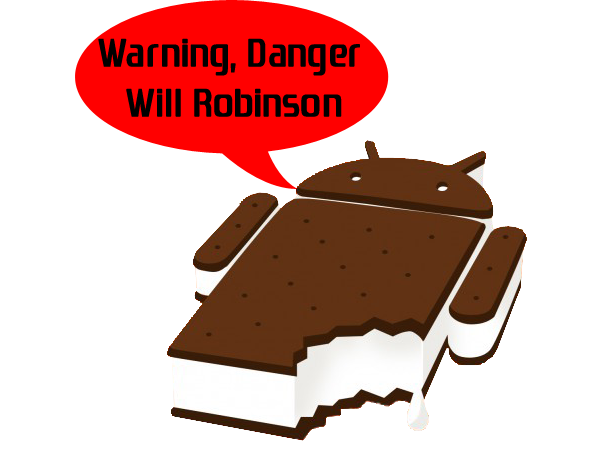Sony has done little to hide their ambitions for Android 4.0 Ice Cream Sandwich, the latest OS release from the folks at Redmond Mountain View. Despite ICS having a slow start and adoption rate, Sony has already updated their Music Unlimited app with ICS compatibility and has outlined the time frame for the Tablet S and Tablet P to gain the latest. Sony’s entire Xperia fleet will also be making the transition to the new OS. Still despite their dedication to the OS, Sony warns users that they might not in fact want to upgrade their devices to Android 4.0 when the update become available for their device.
So what reasons does the electronic giant give to cautious users who may be better off sticking with Android 2.3 Gingerbread? Speed and performance seems to top the list as the new OS requires more processing power and RAM.
Another interesting thing is that many apps use slightly more RAM in ICS. For example, the web browser is quite intensive, and our measurements indicate that it uses 20-30MB more in ICS compared to Gingerbread.
Sony goes on to advise users to check their RAM usage by going to Applications in the Settings app of their Xperia phone. Slow performance in Android 4.0 isn’t limited to just more RAM usage. Google has also changed a fundamental part of Android with previous SQL handling going from the native to the Java layer. This is especially apparent with apps that have no been updated for ICS.
In our internal studies, we have seen that read and write operations to the SQL database takes longer time, which slows down the apps. Many applications perform a lot of SQL operations when started, which greatly impacts the start-up time.
ANR (Application Not Respond) is also way more common in ICS which can result in a slower and less stable user experience. According to Sony,
If an operation takes too long, there is a risk of getting an Application Not Responding (ANR) as a result. An ANR occurs when an application doesn’t answer an intent, or responds to an input event, within a certain time limit. In case of intent, the time out is set to five seconds. For the input event, such as screen touch or button click, it’s ten seconds.
If those reasons weren’t enough, heavy users will also feel a pinch with ICS which has resulted in a decline of battery lifetime for most Android handset manufactures.
Another effect of the hardware acceleration is that it can make the battery drain faster in some cases. An example of this is video playback, where the hardware acceleration requires every video frame to be run through the GPU, thus making the system use more power than it would have without HW acceleration.
While Sony isn’t flat out telling you to hold off Android 4.0, the company who is transitioning a majority of its products to the new OS does raise some healthy concerns. With plenty of kinks yet to be worked out from ICS, it might be best left alone until newer generation handsets come to the market which are built with the new OS in mind.
Update:
As our reader pointed, we had accidentally typed Redmond for Google HQ, instead of Mountain View.
Discuss:
Will you heed Sony’s warnings or are you planning on upgrading to Android 4.0 Ice Cream Sandwich as soon as it’s available for your device?
[Via Sony]

